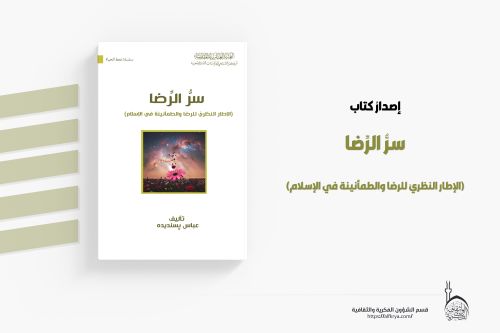

Grammar


Tenses


Present

Present Simple

Present Continuous

Present Perfect

Present Perfect Continuous


Past

Past Continuous

Past Perfect

Past Perfect Continuous

Past Simple


Future

Future Simple

Future Continuous

Future Perfect

Future Perfect Continuous

Passive and Active


Parts Of Speech


Nouns

Countable and uncountable nouns

Verbal nouns

Singular and Plural nouns

Proper nouns

Nouns gender

Nouns definition

Concrete nouns

Abstract nouns

Common nouns

Collective nouns

Definition Of Nouns


Verbs

Stative and dynamic verbs

Finite and nonfinite verbs

To be verbs

Transitive and intransitive verbs

Auxiliary verbs

Modal verbs

Regular and irregular verbs

Action verbs


Adverbs

Relative adverbs

Interrogative adverbs

Adverbs of time

Adverbs of place

Adverbs of reason

Adverbs of quantity

Adverbs of manner

Adverbs of frequency

Adverbs of affirmation


Adjectives

Quantitative adjective

Proper adjective

Possessive adjective

Numeral adjective

Interrogative adjective

Distributive adjective

Descriptive adjective

Demonstrative adjective


Pronouns

Subject pronoun

Relative pronoun

Reflexive pronoun

Reciprocal pronoun

Possessive pronoun

Personal pronoun

Interrogative pronoun

Indefinite pronoun

Emphatic pronoun

Distributive pronoun

Demonstrative pronoun


Pre Position


Preposition by function

Time preposition

Reason preposition

Possession preposition

Place preposition

Phrases preposition

Origin preposition

Measure preposition

Direction preposition

Contrast preposition

Agent preposition


Preposition by construction

Simple preposition

Phrase preposition

Double preposition

Compound preposition


Conjunctions

Subordinating conjunction

Correlative conjunction

Coordinating conjunction

Conjunctive adverbs


Interjections

Express calling interjection


Grammar Rules

Preference

Requests and offers

wishes

Be used to

Some and any

Could have done

Describing people

Giving advices

Possession

Comparative and superlative

Giving Reason

Making Suggestions

Apologizing

Forming questions

Since and for

Directions

Obligation

Adverbials

invitation

Articles

Imaginary condition

Zero conditional

First conditional

Second conditional

Third conditional

Reported speech


Linguistics

Phonetics

Phonology


Semantics


Pragmatics

Linguistics fields

Syntax

Morphology

Semantics

pragmatics

History

Writing

Grammar

Phonetics and Phonology

Semiotics


Reading Comprehension

Elementary

Intermediate

Advanced


Teaching Methods

Teaching Strategies
Consonants t, k, g
المؤلف:
Peter L. Patrick
المصدر:
A Handbook Of Varieties Of English Phonology
الجزء والصفحة:
240-12
2024-03-14
865
Consonants t, k, g
In many BrE dialects including LonVE, syllable-final and word-medial /t/ are often subject to glottal substitution, glottal reinforcement, and other forms of glottalisation. This highly salient and stigmatized vernacular feature is not noticeable in JamC, but occurs regularly in BrC and is assimilated even by Caribbean-born adult migrants.
Straw (2001) examines glottal features in the Suffolk town of Ipswich, in the English of Caribbean-born speakers from Jamaica, Nevis and Barbados (it occurs natively in the last, uniquely in the West Indies [Roberts 1988], but in a pattern different from EngE). She finds different frequencies and environmental constraints among them, and between the accents of Caribbean and white Ipswich residents. Analyzing spectrograms, Straw and Patrick (forthcoming) observe that the Barbadians partly exhibit general configurations allegedly diffusing across England, partly resemble white Ipswich speakers (in a departure from known patterns of glottalisation elsewhere), and partly show distinctive features which may reflect IslC usage. Only the youngest Barbadian immigrants may have acquired local Ipswich patterns. T-glottalling is thus a candidate not only for incorporation into BrC, but also for phonological diversity within its varieties, and possibly for helping to distinguish a new ethnic dialect of BrE.
Palatalization of JamC /k, g/ and insertion of /j/ glides is studied in Patrick (1995) and Beckford Wassink (1999); nothing different has emerged in BrC. Initial consonant clusters, especially /sCC/, e.g. spring, strong, are more likely in BrC than JamC.















 قسم الشؤون الفكرية يصدر مجموعة قصصية بعنوان (قلوب بلا مأوى)
قسم الشؤون الفكرية يصدر مجموعة قصصية بعنوان (قلوب بلا مأوى) قسم الشؤون الفكرية يصدر مجموعة قصصية بعنوان (قلوب بلا مأوى)
قسم الشؤون الفكرية يصدر مجموعة قصصية بعنوان (قلوب بلا مأوى) قسم الشؤون الفكرية يصدر كتاب (سر الرضا) ضمن سلسلة (نمط الحياة)
قسم الشؤون الفكرية يصدر كتاب (سر الرضا) ضمن سلسلة (نمط الحياة)

















